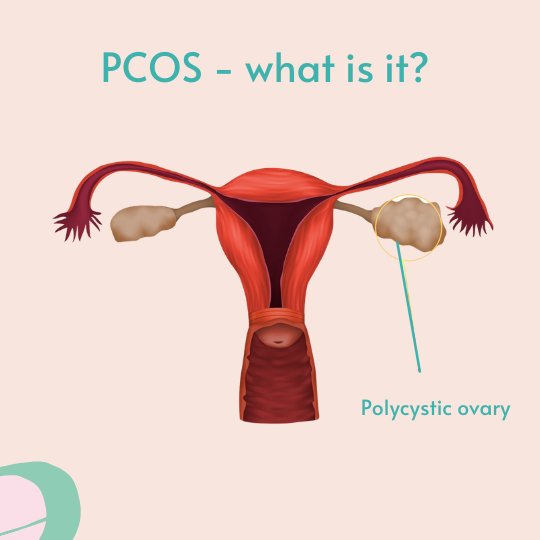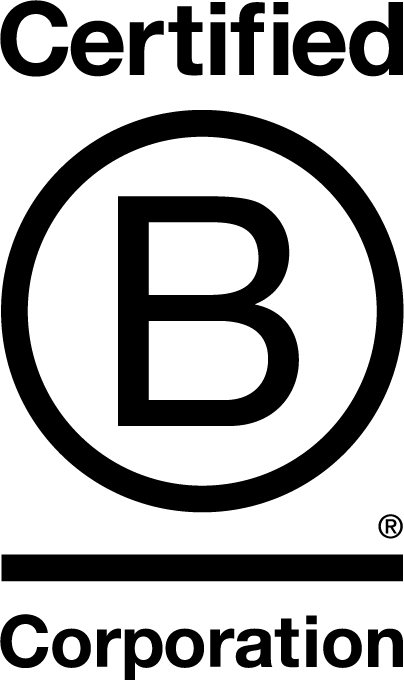Introducing Polycystic Ovary Syndrome
Polycystic ovary syndrome (PCOS) is something that many of us may have heard of from friends, family members or our own diagnosis. But what exactly is it? What are the symptoms? Are there any treatments for it? Here we are going to talk through all things PCOS.
PCOS is a hormonal disorder common among women of reproductive age, and unfortunately, it’s more common than you think. 20% of women in this age group have PCOS. However, a lot of women don’t even know it. In one study, up to 70 percent of women with PCOS hadn’t been diagnosed.
Signs of PCOS
There are 3 main symptoms, however not everyone with PCOS will have all three:
- irregular periods;
- a higher level of androgens;
- and polycystic ovaries.
(Disclaimer: We are not doctors! We are just trying to share some intel on this common syndrome. So please remember that if you have any specific questions or concerns, always seek professional medical advice.)
So what exactly is polycystic ovary syndrome?
As you probably know, a woman's ovaries are her reproductive organs. Ovaries produce hormones, estrogen and progesterone, that regulate the menstrual cycle. They also produce a small amount of male hormones called androgens.
PCOS affects ovaries which means women may have infrequent or prolonged periods, or have excess male hormone levels.
Every month, your ovaries develop small fluid-filled sacs (follicles) that start to develop an egg for fertilisation. One of these follicles eventually releases the egg, which is called ovulation. With PCOS, some follicles don’t fully mature or release an egg, so these follicles remain on their ovaries. The word “polycystic” actually means “many cysts.”

Ok got it - so what causes PCOS?
The exact cause of PCOS isn’t known. Annoying right? Symptoms and signs of PCOS often develop around the time of your first period. Others only discover they have PCOS after they’ve gained a lot of weight or they’ve had trouble getting pregnant.
Factors that contribute to PCOS
- Excess insulin. Insulin is the hormone that regulates your sugar and energy supply in the pancreas. If your cells become resistant to the action of insulin, then your blood sugar levels can rise and your body might produce more insulin.This excess insulin might increase androgen production, causing difficulty with ovulation.
- Low-grade inflammation. This term is used to describe white blood cells' production of substances to fight infection. Research has shown that women with PCOS produce less white blood cells which stimulates polycystic ovaries to produce more androgens.
- Heredity. Research suggests that certain genes might be linked to PCOS. (Thanks Mom!)
- Excess androgen. The ovaries produce abnormally high levels of androgen, resulting in excess hair growth and acne.
How do I know if I have Polycystic Ovary Syndrome?
The symptoms and signs of PCOS vary and can be mild or severe. Common symptoms include:
- irregular periods or no periods at all
- difficulty getting pregnant
- excessive hair growth – usually on the face, chest and back
- weight gain
- thinning hair and hair loss from the head
- oily skin or acne
Not great symptoms eh! But remember, you should talk to your GP if you have any of these symptoms and think you may have PCOS!
Can PCOS be cured?
Due to the mystery surrounding PCOS (despite it being so common!), treatment and management varies greatly from person to person and largely depends on your symptoms. While there is currently no ‘one-size fits all’ cure for PCOS, a wide range of treatments can help minimise symptoms.
- Weight Loss. Weight loss can treat PCOS symptoms and improve the odds of getting pregnant. Diet and aerobic exercise are two effective ways to lose weight. Losing just 5-10% of your body weight can help regulate your menstrual cycle and improve PCOS symptoms.
- Acupuncture There is some new evidence to suggest that acupuncture can help with improving PCOS, but more research is needed! (Worth a shot?)
- Medication. Finally, medications are an option if lifestyle changes don’t work. Birth control pills and metformin can both restore more normal menstrual cycles and relieve PCOS symptoms.
Key takeaways about PCOS
PCOS affects normal ovarian function and ovulation. In order to be diagnosed, you need to have 2 out of the following 3:
- higher levels of androgens
- irregular periods
- polycystic ovaries.
PCOS can disrupt your menstrual cycles and make it harder to get pregnant but there are medications to help those who are struggling to get pregnant. High levels of male hormones also can lead to unwanted symptoms like acne and hair growth on the face and body.
But remember, whilst there is no simple cure for PCOS, there are options to deal with it including some forms of hormonal contraception and certain medications. However lifestyle interventions are the first treatments doctors recommend and they often work well. This usually starts with lifestyle changes like weight loss, diet, and exercise
Also, you are not alone. Remember nearly 20% of women & people with periods have this syndrome - and that’s only the percentage of those who have been diagnosed. So let’s open up the conversation and learn from each other on how to manage this and support each other going forward!
If you want to find out more about PCOS and our Riley Products, please visit our Life of Riley Blog to learn more today.



